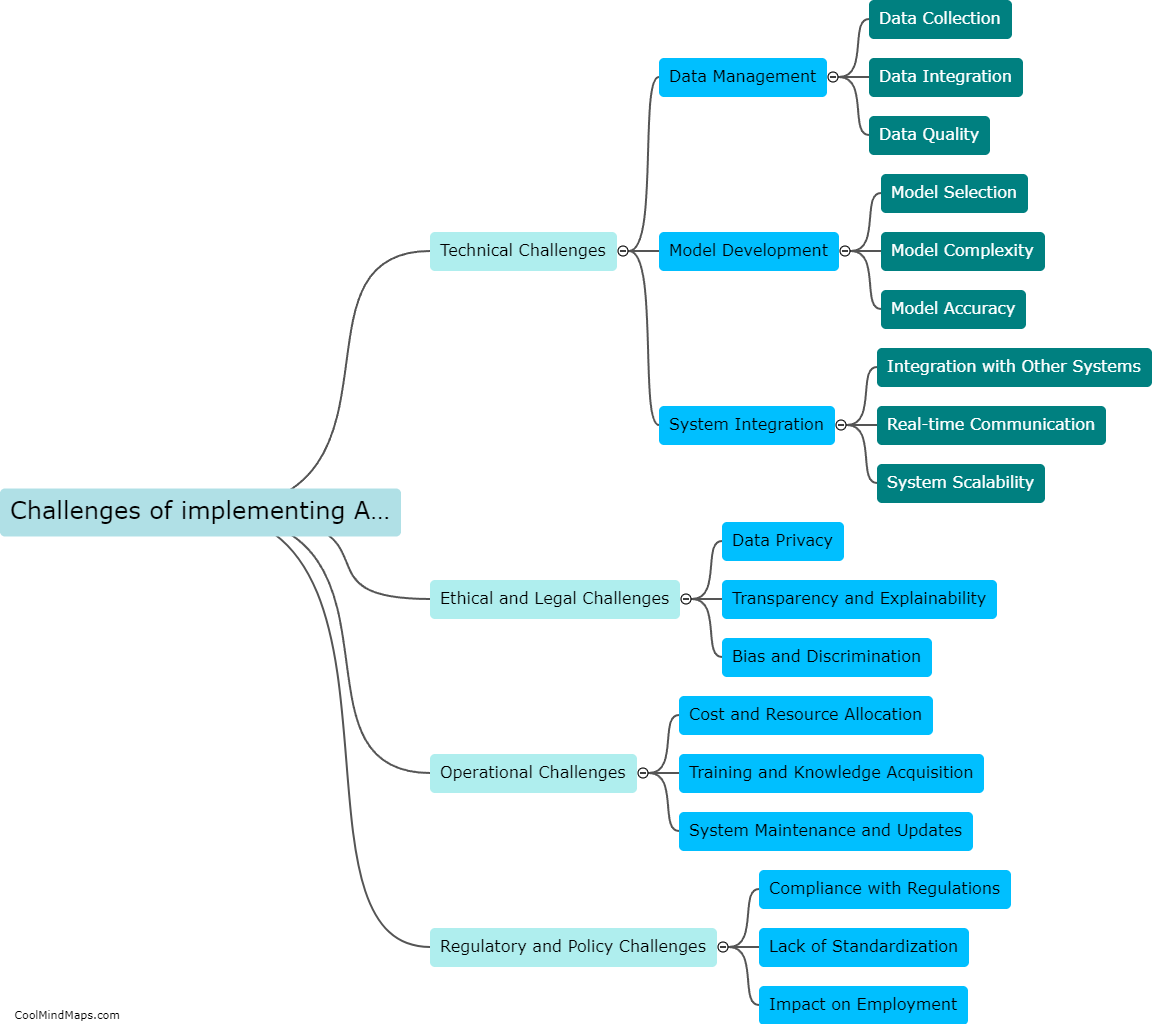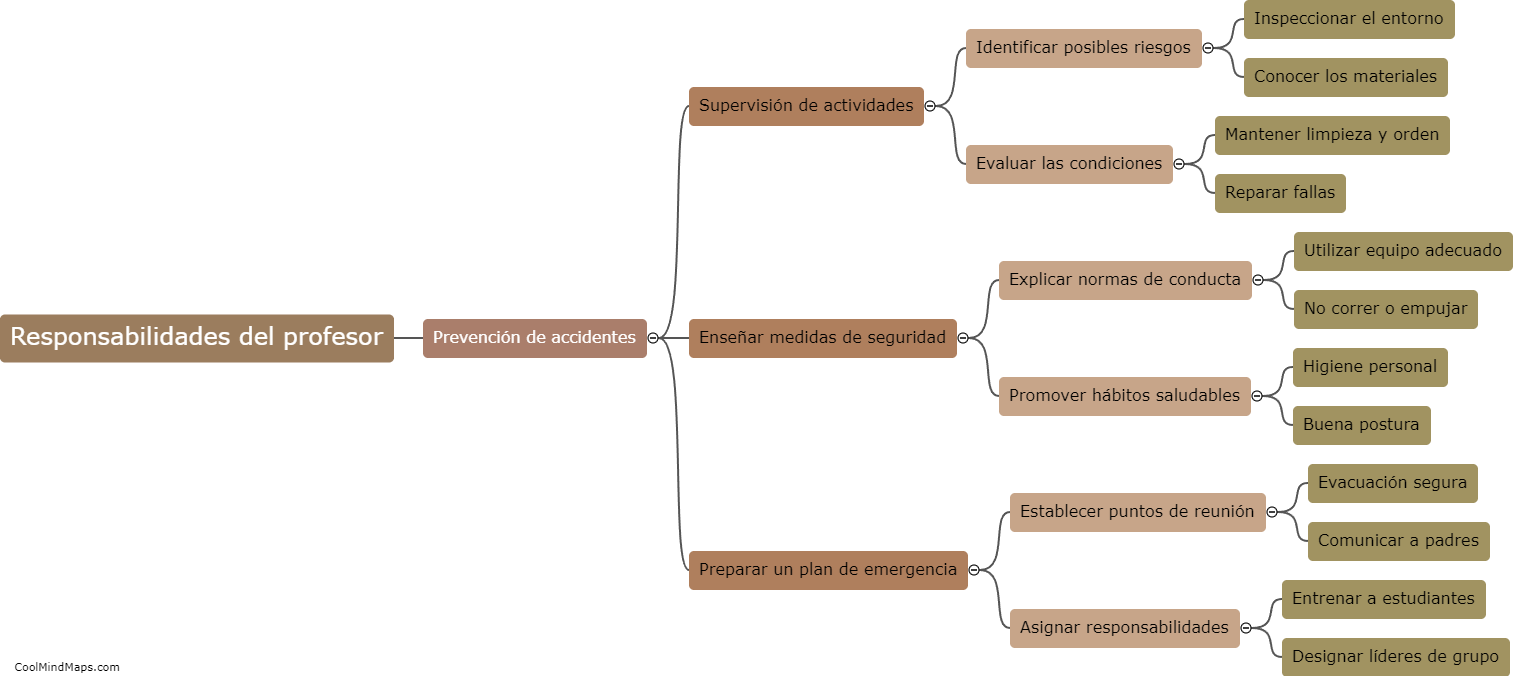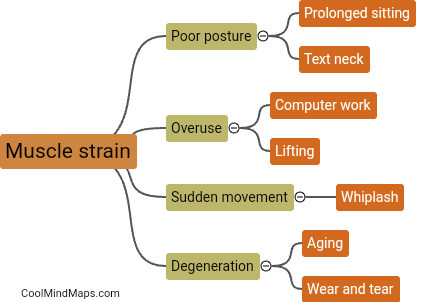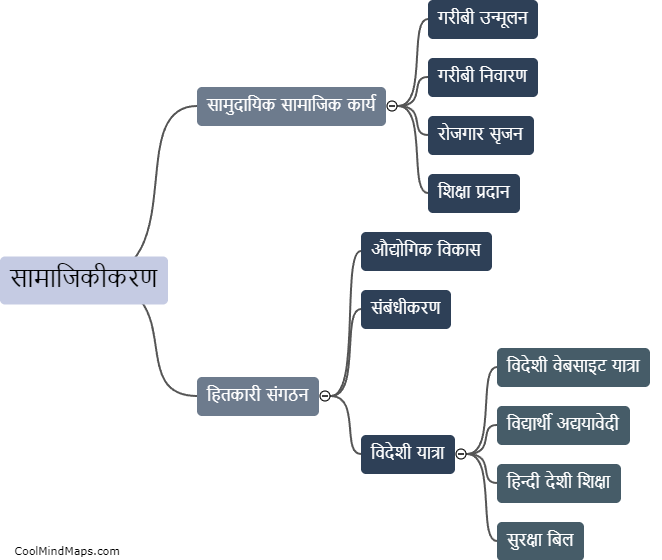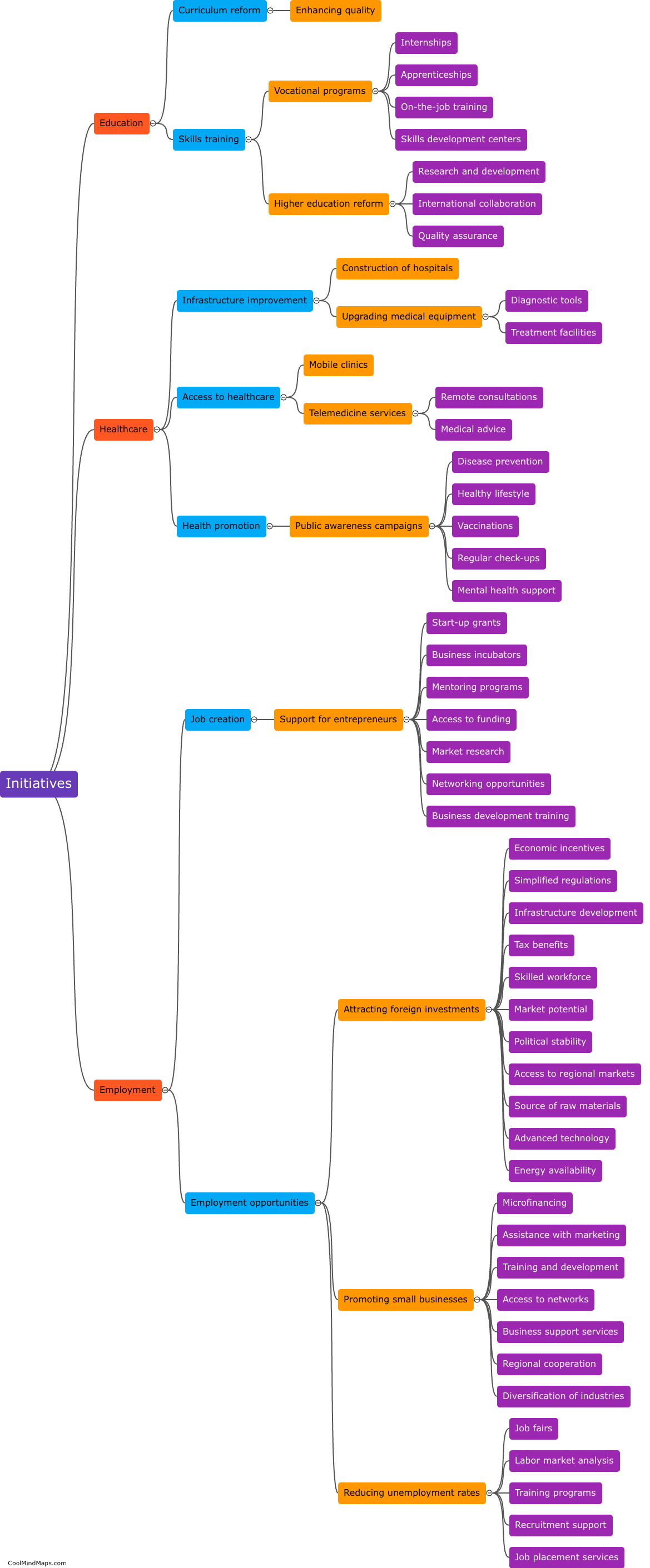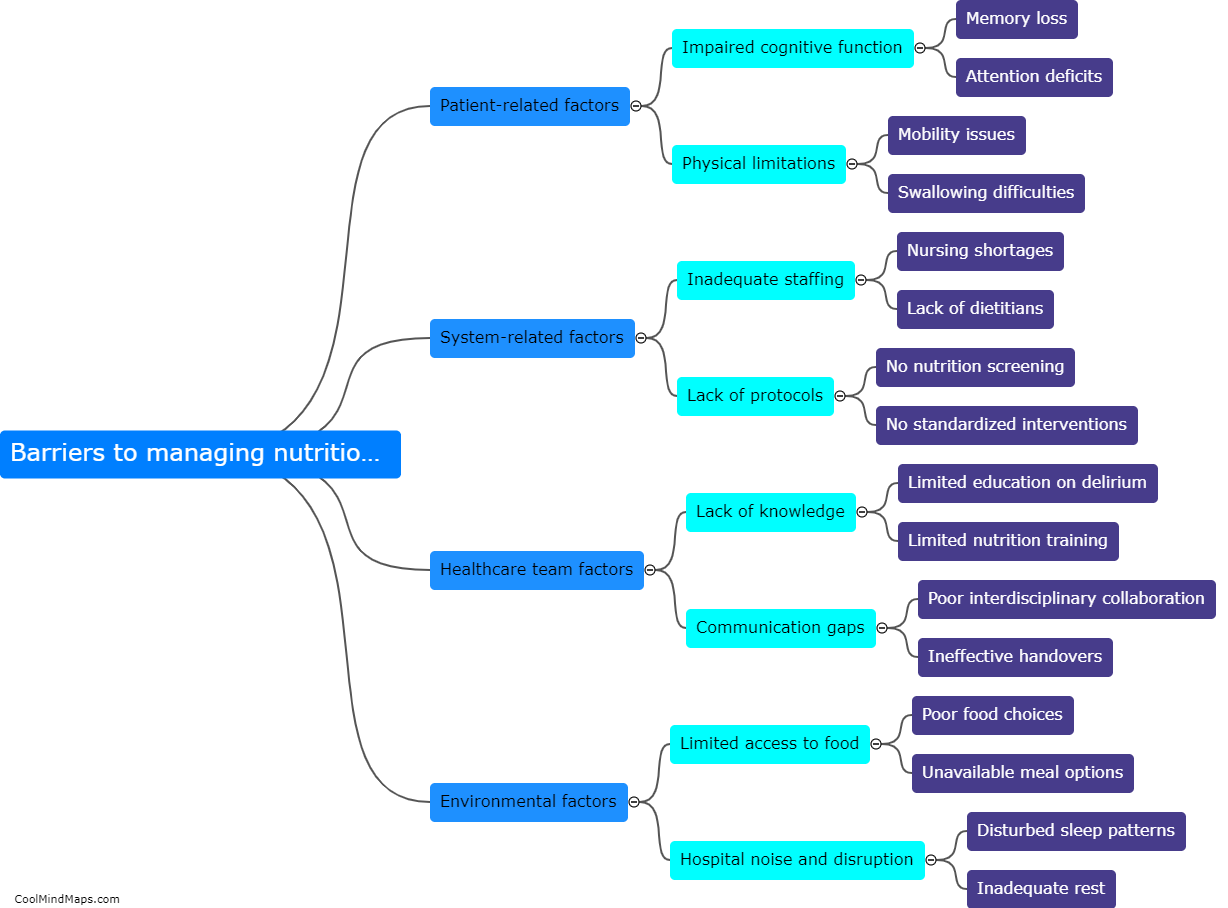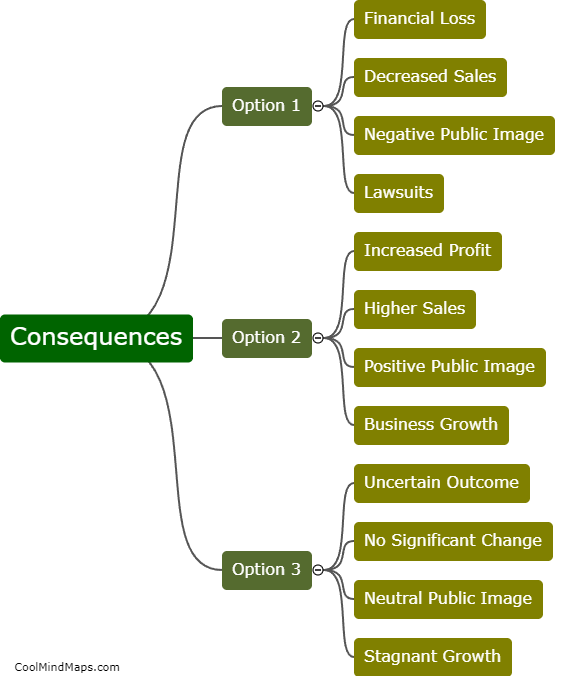What are the nutritional needs of delirium emergency patients?
The nutritional needs of delirium emergency patients are crucial for their recovery and overall health. Delirium is a common condition characterized by sudden confusion and changes in cognitive ability, often occurring as a result of underlying medical conditions or medication side effects. During an episode of delirium, patients may experience alterations in appetite, decreased oral intake, and increased metabolic demands. It is important to provide these patients with adequate nutrition to support their energy needs, promote healing, and prevent malnutrition. This may involve providing a well-balanced diet with sufficient calories, proteins, vitamins, and minerals. Additionally, healthcare professionals should consider the individual patient's dietary preferences, chewing or swallowing difficulties, and the potential need for enteral or parenteral nutrition in severe cases. By addressing the nutritional needs of delirium emergency patients, healthcare providers can contribute to their recovery and help optimize their overall well-being.
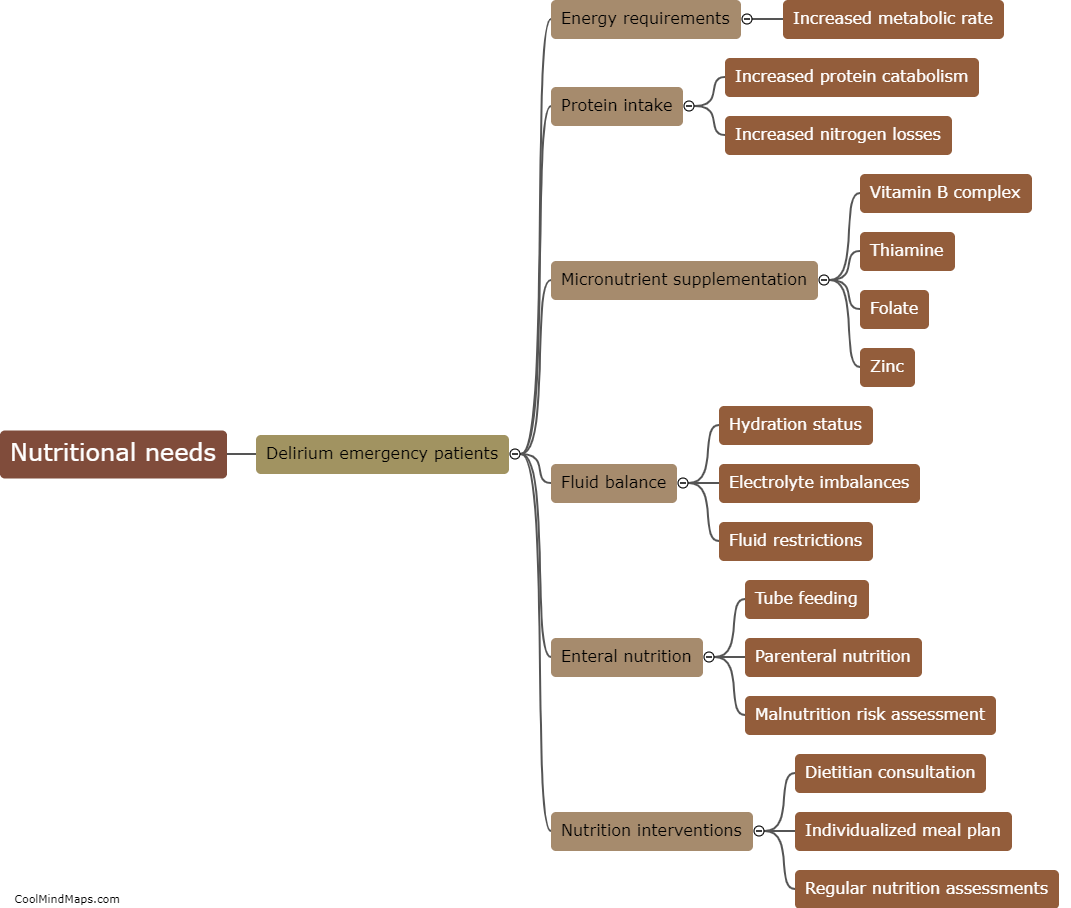
This mind map was published on 1 December 2023 and has been viewed 97 times.

